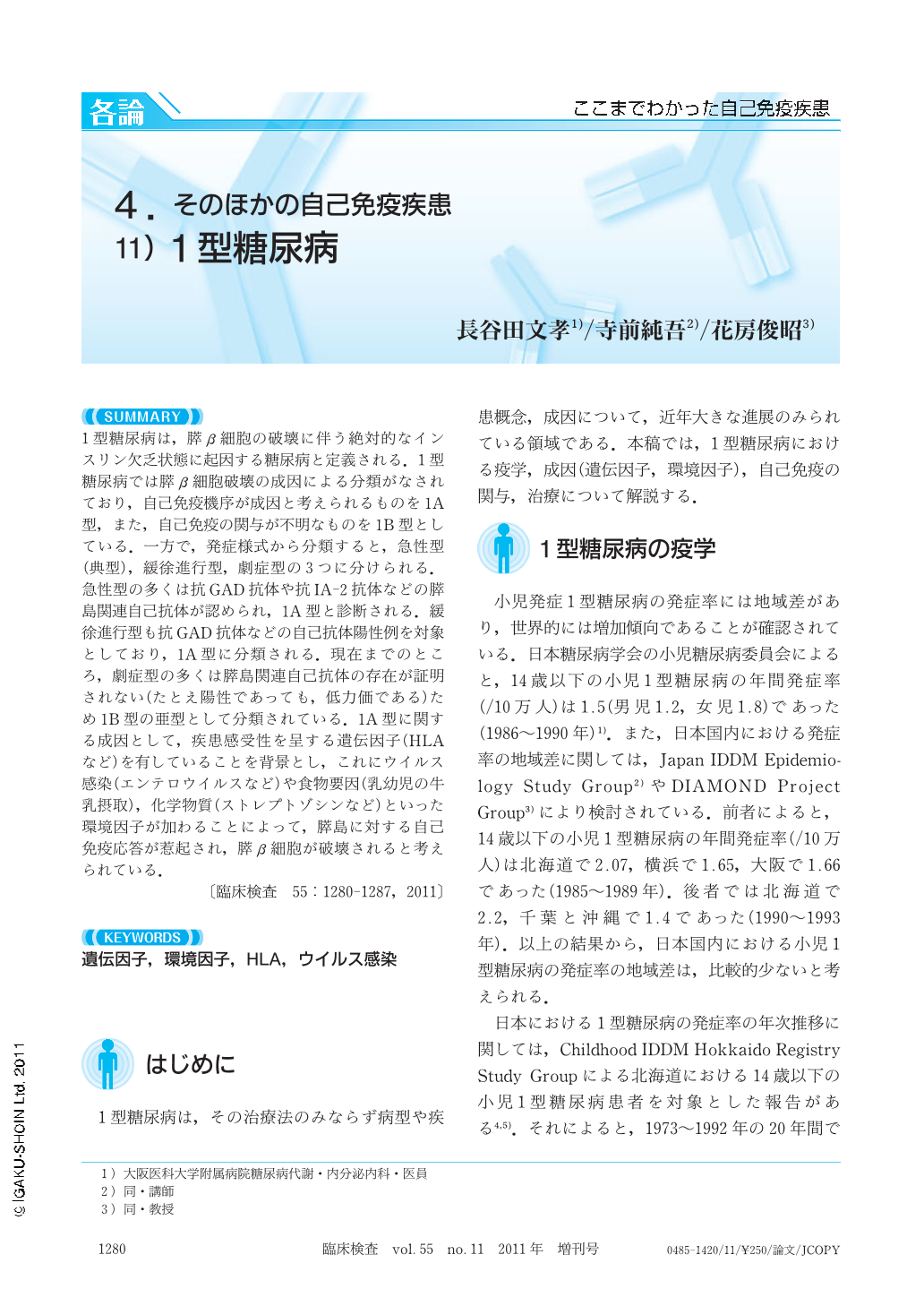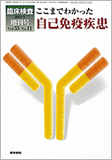Japanese
English
- 有料閲覧
- Abstract 文献概要
- 1ページ目 Look Inside
- 参考文献 Reference
1型糖尿病は,膵β細胞の破壊に伴う絶対的なインスリン欠乏状態に起因する糖尿病と定義される.1型糖尿病では膵β細胞破壊の成因による分類がなされており,自己免疫機序が成因と考えられるものを1A型,また,自己免疫の関与が不明なものを1B型としている.一方で,発症様式から分類すると,急性型(典型),緩徐進行型,劇症型の3つに分けられる.急性型の多くは抗GAD抗体や抗IA-2抗体などの膵島関連自己抗体が認められ,1A型と診断される.緩徐進行型も抗GAD抗体などの自己抗体陽性例を対象としており,1A型に分類される.現在までのところ,劇症型の多くは膵島関連自己抗体の存在が証明されない(たとえ陽性であっても,低力価である)ため1B型の亜型として分類されている.1A型に関する成因として,疾患感受性を呈する遺伝因子(HLAなど)を有していることを背景とし,これにウイルス感染(エンテロウイルスなど)や食物要因(乳幼児の牛乳摂取),化学物質(ストレプトゾシンなど)といった環境因子が加わることによって,膵島に対する自己免疫応答が惹起され,膵β細胞が破壊されると考えられている.
Type 1 diabetes mellitus is characterized by the loss of insulin-producing pancreatic beta cells leading to insulin deficiency. This type of diabetes can be classified as autoimmune-mediated (Type 1A) or idiopathic (Type 1B). When classifying type 1 diabetes according to the manner of onset, it is divided into three groups ; acute onset, slowly progressive and fulminant type 1 diabetes. Islet-related autoantibodies such as anti-GAD (glutamic acid decarboxylase) antibody and anti-IA-2 (insulinoma-associated protein-2) antibody are found in the majority of acute onset type 1 diabetes, so it is classified as type 1A. Anti-GAD Ab is also found in slowly progressive type 1 diabetes. On the other hand, fulminant type 1 diabetes is negative in general for islet-related autoantibodies and classified as type 1B. As the etiology of type 1A diabetes, viral infection, food factor or chemical factor based on genetic factor, is thought to activate the autoimmune reaction to pancreatic beta cells, leading to their destruction. We will concentrate here on recent advances in our understanding of the genetics, epidemiology, pathogenesis, prediction, prevention, and treatment of type 1 diabetes.

Copyright © 2011, Igaku-Shoin Ltd. All rights reserved.


